
Celebrating some of the best interior design in the global scene, the 2019 INSIDE: World Festival of Interiors competition is already well underway at the World Architecture Festival in Amsterdam. Along with the WAF Day One and Day Two winners, the INSIDE winners have also been revealed. This year's competition garnered over 1,000 entries for the second year in a row, with 534 shortlisted entries representing 70 countries. The biggest competitors are China, Taiwan, Hong Kong, Singapore, and Australia.
Now, the nine category-winning teams will face off one final time in hopes to be crowned with the coveted World Interior of the Year 2019 award, which will be announced on the last day of the festival on December 6. Which project will win? Have a look at them below.
DAY ONE WINNERS
(cover image) B:Hive, Smales Farm (Auckland, New Zealand) by BVN in association with Jasmax
“The judges ‘unanimously agreed’ on this project being exemplary of a sustainable and flexible workspace, where the ‘needs of the users informs the architecture’. The office is packed with state of the art facilities, amenities and technology all designed to deliver an environment that empowers and helps to grow regional businesses.”
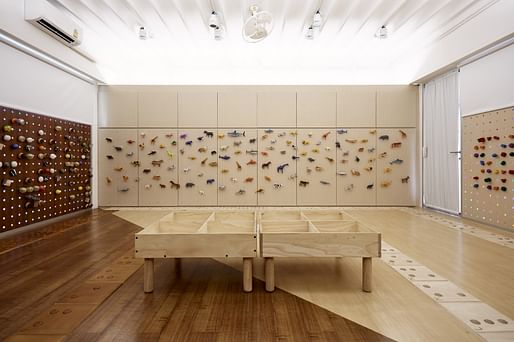
Health and Education category winner: Classroom Makeover for the Blind by Creative Crews
The judges commented that “‘every element (in the design) is purely aligned, essential and thoughtfully considered. Despite a tiny budget, the designers have created a projects with a real social conscience.’ The school enrolls pupils with varying degrees of visual impairment and abilities, therefore the facilities needed to be flexible. The main aim for the building program was to equip all students with fundamental skills for their future livelihoods beyond the school’s gate.”
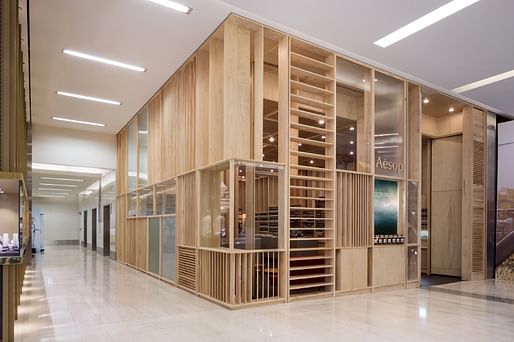
Retail category winner: Aesop Bondi Junction Signature Store by mlkk studio
Judges commented that the design “offered a ‘sophisticated’ and ‘informed’ design solution. The store design intended to retain the construction framework as incomplete and exposed the raw pine structure surface in order to celebrate the beauty of incompleteness. The entire shop front is formed purely by the exposed pine stud framing and glazing and stimulates explorations of several other materials to enhance this concept. Atelier tao+c was also highly commended for their design of the JHW Store in Zhengzhou, China.”
DAY TWO WINNERS
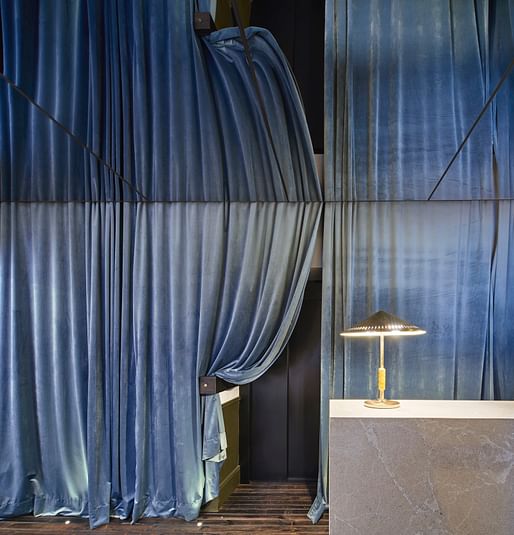
Hotels category winner: Can Bordoy by OHLAB
The judges “‘admired the re-use of a run-down but elegant building that retained and respected some of the existing decay, adding new antiquities’, praising the practice for adopting a ‘bold and successful approach for a 5 star hotel experience’. Located in the heart of Palma de Mallorca’s historical center, the project featured the complete renovation of a more than 500-year-old abandoned building into a hotel celebrating the romanticism and decadence of the existing structure.”
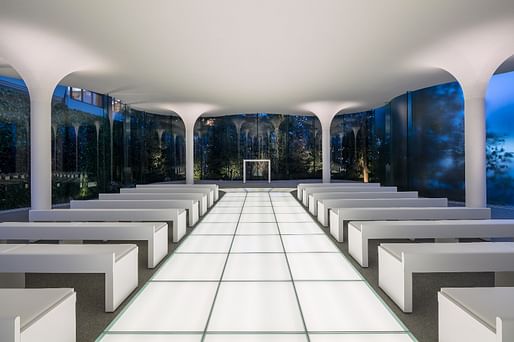
Civic, Culture, and Transport category winner: Cloud of Luster by KTX archiLAB
“The Cloud of Luster is a unique cloud shaped wedding chapel with an all white, minimalistic ceiling free of any technical equipment and supported by round columns with a hyperbolic cone head; with a back lit glass floor for the aisle, leading to a minimalistic altar over the elevated choir.”
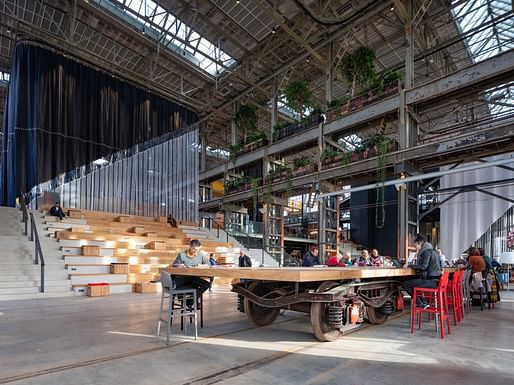
Creative Reuse category winner: LocHal by Mecanoo architecten
“Described by the judges as a ‘true public space’, LocHal library is a former locomotive shed transformed into a new urban living room for the Dutch city of Tilburg. The project provides a space for all ages to read, learn, study, meet and gather and enjoy the unique design featuring historical elements such as the original train tracks as well as new oak and steel additions. The judges also enjoyed Mecanoo architecten's interventions and commented that the building was ‘thoughtfully designed and yet not over-designed.’”
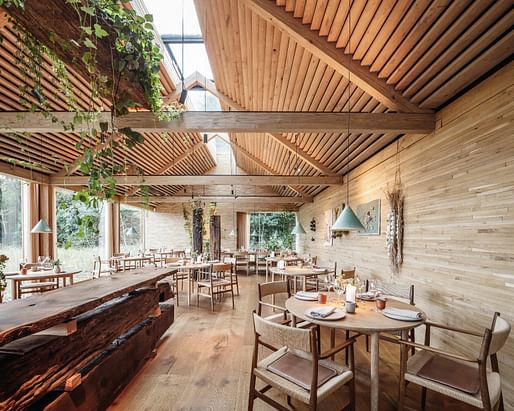
Bars & Restaurants category winner: noma by BIG - Bjarke Ingels Group
“The judges praised how the new restaurant's ‘architecture serves the interior spaces and puts the food experience center stage’. The project challenges conventions by splitting the restaurant’s key functions into separate, yet interconnected areas grouped around the heart of the restaurant: the kitchen. The judges described these as ‘a variety of intimate and homely atmospheres unified by consistent and considered materiality.”
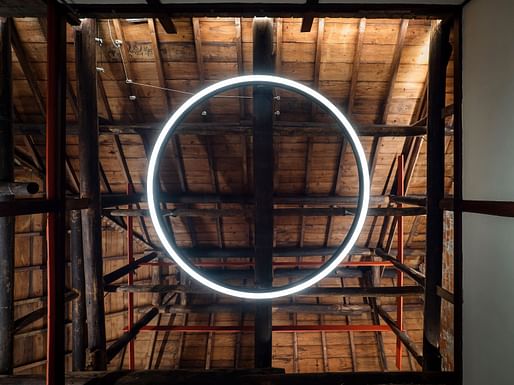
Residential category winner: JCA Living Lab by J.C. Architecture
The judges described the project as “‘A Machine for Green Living: DIY, low-cost and low-tech, yet imaginative in layout, design details and materials as well as being innovative in building and environmental technologies’, which brings ‘multi-sensory, joyful living’. JCA Living Lab has also been branded a ‘laboratory for future living’ by the judges, which through reinventing and upcycling becomes ‘a small agent of change with the potential to become a pilot for future large-scale schemes.”
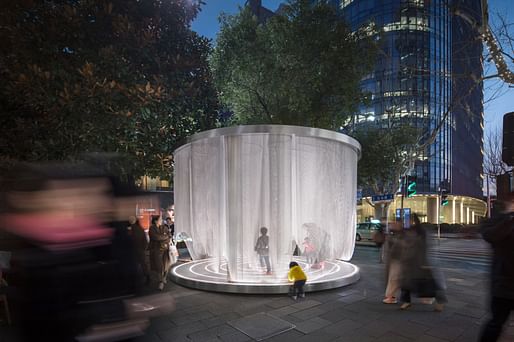
Display category winner: The Cloud Maze by RSAA, Büro Ziyu Zhuang
The Cloud Maze is a four-meter-tall installation evoking connections to traditional Chinese paintings as well as resembling the forms of mountains and clouds. “The Cloud Maze balanced two narratives of a translucent maze and the echoes of the mountains in an immersive experience...the forms and display elements were skillfully drafted and enjoyed by all passers-by,” the judges commented.
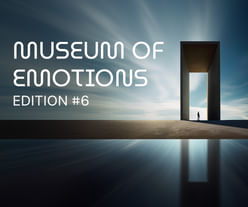
Museum of Emotions / Edition #6
Register by Thu, Jan 23, 2025
Submit by Tue, Apr 29, 2025
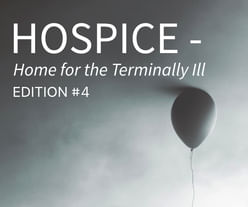
Hospice - Home for Terminally Ill #4
Register by Wed, Jan 15, 2025
Submit by Mon, Jun 16, 2025

Land Art Generator Initiative 2025 Fiji: Climate Resilience for Island Communities
Register/Submit by Mon, May 5, 2025
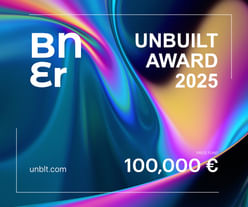
100,000 € Prize / Buildner's Unbuilt Award 2025
Register by Thu, Oct 30, 2025
Submit by Thu, Nov 20, 2025
No Comments